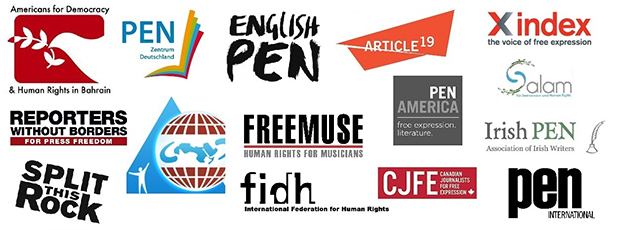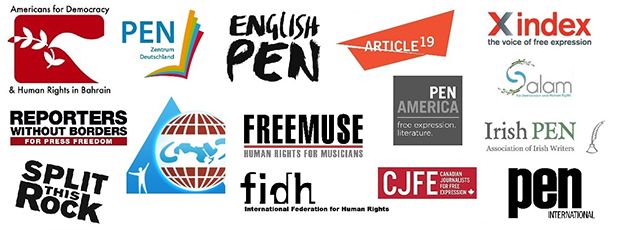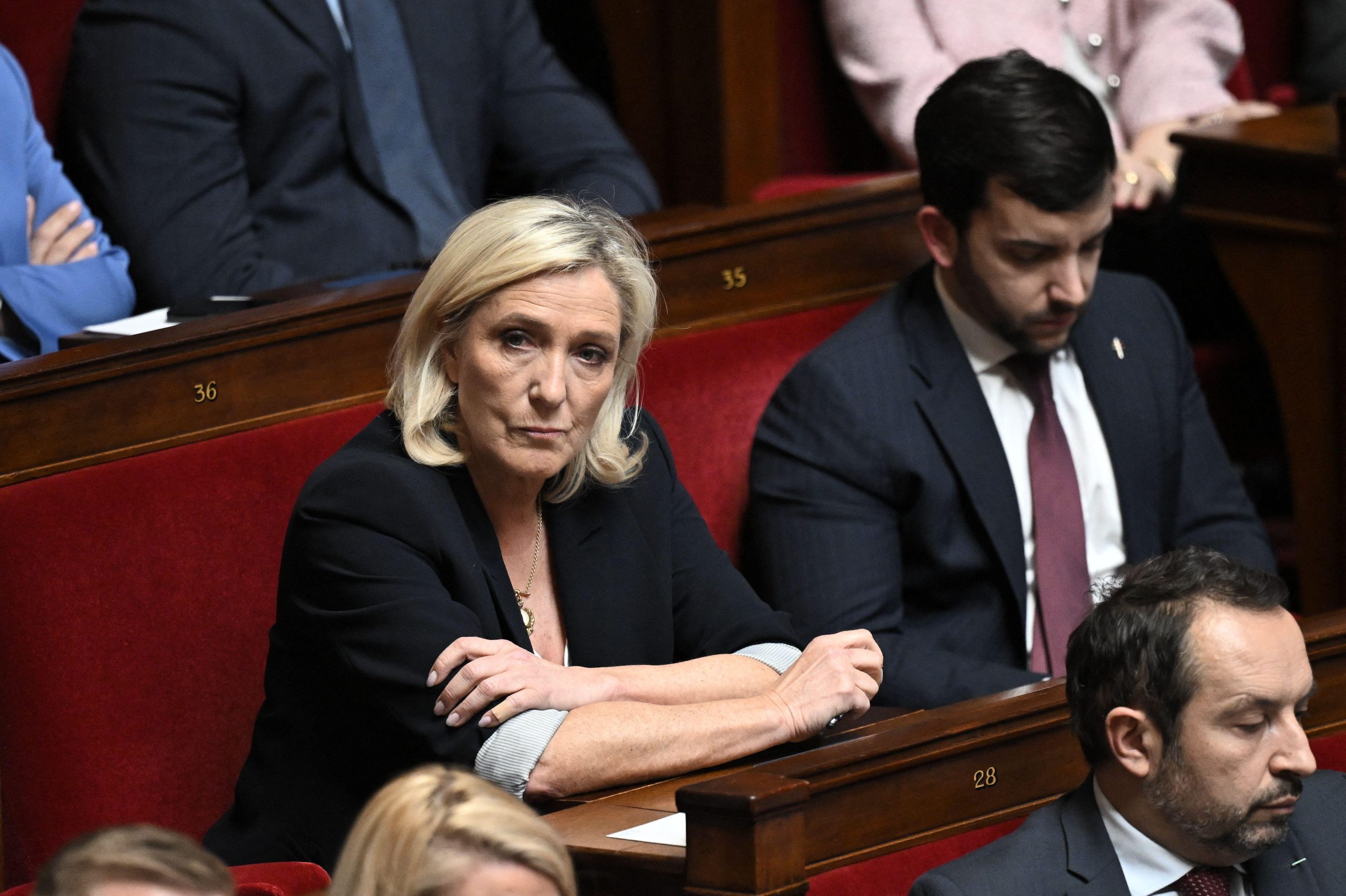
Farida Shaheed
Special Rapporteur in the Field of Cultural Rights
Mónica Pinto
Special Rapporteur on the Independence of Judges and Lawyers
David Kaye
Special Rapporteur on the Promotion and Protection of the Right to Freedom of Opinion and Expression
Seong-Phil Hong
Chair-Rapporteur of the Working Group on Arbitrary Detention
Special Procedures Branch
Office of the High Commissioner for Human Rights
United Nations Office at Geneva
8-14 avenue de la Paix
1211 Geneva 10
Switzerland
Dear Special Procedure mandate holders,
We are writing to urge you to pay continuing attention to the arbitrary arrest, detention, and conviction of the Qatari poet Mohammed al-Ajami, widely known as Ibn al-Dheeb.
Al-Ajami’s case has been the subject of a December 2012 communication to the government of Qatar from the Special Rapporteur in the Field of Cultural Rights, the Special Rapporteur on the Promotion and Protection of the Right to Freedom of Opinion and Expression, and the Special Rapporteur on the Independence of Judges and Lawyers1, discernable steps to address the issues set forth in the communication.
The arrest of Mohammed al-Ajami for the contents of his poetry is a violation of his right to freedom of expression and his right not to be arbitrarily deprived of liberty, and his conviction to 15 years in prison results further from a violation of his right to a fair trial. Amnesty International considers him a prisoner of conscience and he should be released immediately and unconditionally.
Various UN mechanisms have addressed al-Ajami’s case, as well as the human rights situation in Qatar more generally. Shortly before al-Ajami’s conviction in November 2012, the UN Committee against Torture criticized violations of due process by the State of Qatar in its consideration of the country’s second periodic report.2 The Committee recommended that Qatar “promptly take effective measures to ensure that all detainees, including non-citizens, are afforded, in practice, all fundamental legal safeguards from the very outset of detention.” It also expressed concern that persons detained under provisions of the Protection of Society Law (Law No. 17 of 2002), the Law on Combating Terrorism (Law No. 3 of 2004),and the Law on the State Security Agency (Law No. 5 of 2003) “may be held for a lengthy period of time without charge and fundamental safeguards, including access to a lawyer, an independent doctor and the right to notify a family member and to challenge the legality of their detention before a judge.” The Committee specifically cited Mohammed al-Ajami as an example of the fact that persons detained under these laws are often subject to incommunicado detention or solitary confinement. Though the Committee urged Qatar to amend its laws and ensure that fundamental safeguards are provided, Qatar has not taken any steps to address these concerns.
As noted above, al-Ajami’s case received additional attention from special procedures of the Human Rights Council through a joint communication issued on 21 December 2012, shortly after his original sentencing. The Special Rapporteurs in the Field of Cultural Rights, on the Independence of Judges and Lawyers, and on the Promotion and Protection of the Right to Freedom of Opinion and Expression expressed concern in a joint communication to the Qatari government that the arrest, detention, and sentencing of al-Ajami may have been “solely related to the peaceful exercise of his right to freedom of opinion and expression.” The Special Rapporteurs further noted concerns regarding the fairness of his trial and his treatment while in detention.3
On 14 February 2013, the Qatari government responded to the UN human rights experts by asserting that the government followed the proper procedures throughout al-Ajami’s case, and that the State “[keeps] in mind [its] obligations under international conventions and standards related to human rights and their 1 but the Government of Qatar has thus far not taken any implementation.”4 We believe that the Qatari government’s response did not accurately represent the administration of justice in this case, and the authorities took no further action of which we are aware.
On 8 January 2013, the Office of the UN High Commissioner for Human Rights (OHCHR) again voiced concern over the situation of Mohammed al-Ajami. The OHCHR’s spokesperson told reporters: “We are concerned by the fairness of his trial, including the right to counsel.” She additionally pointed to allegations that al-Ajami’s initial statement may have been tampered with in order to wrongly incriminate him.
In 2014, during a review of its human rights record in the context of the Universal Periodic Review, the Government of Qatar expressly rejected a recommendation to release Mohammed al-Ajami.5 At the same session, the government pointedly accepted a recommendation to “continue and strengthen relations with OHCHR.”6 We urge you to remind the Qatari government of this commitment.To the best of our knowledge, the United Nations has not taken any action on Mohammed al-Ajami’s case since his final appeal in October 2013. Thus, we respectfully ask that you continue to dedicate attention to his case and follow up on his arbitrary imprisonment, and insist that Qatar take corrective action to address the human rights violations that have been committed against him. We also ask that you raise these concerns with the Government of Qatar and follow up on the unaddressed recommendations set forth in past communications.
While we understand that his treatment while in prison has been generally acceptable, it remains the case, in our view, that he has been unfairly tried and convicted and, for that reason, this is a matter of an ongoing injustice.
Thank you for your time and consideration. Please do not hesitate to contact us if you need more information or clarifications.
Yours sincerely,
Americans for Democracy & Human Rights in Bahrain
Amnesty International
Arabic Network for Human Rights Information
Article 19
Canadian Journalists for Free Expression
English PEN
FreeMuse
German PEN
Index on Censorship
International Federation for Human Rights
Irish PEN
PEN American Center
PEN International
Reporters Without Borders
Salam for Democracy and Human Rights
Split This Rock
Background
State security officials summoned Mohammed al-Ajami to a meeting on 16 November 2011. Upon arrival, authorities arrested him on suspicion of insulting the Emir of Qatar, Sheikh Hamad bin Khalifa al-Thani, and “inciting to overthrow the ruling system.”
The charges against al-Ajami related to a 2010 poem (“The Cairo Poem”) he had recited and which the Qatari authorities allege to have criticized the Emir. The poem nevertheless referred to the Emir as “a good man” and expressed “thanks” to him, and it formed part of a ‘call-and-response’ type of exchange that is a popular form of recitation. Al-Ajami recited it during a private gathering in Cairo in August 2010, after which one of the attendees posted a video of the event online.
On 29 November 2012, a lower court sentenced al-Ajami to life imprisonment following an unfair trial. The court reportedly heard testimony from three “poetry experts” employed by the government’s culture and education ministries, who testified that the poem represents an insult to the Emir of Qatar and his son.
On 25 February 2013, an appeals court reduced al-Ajami’s life sentence to 15 years. The Court of Cassation, Qatar’s highest court, upheld the 15-year sentence on 20 October 2013. Al-Ajami’s only remaining path to freedom is a pardon from the Emir.
The administration of justice in this case has been grossly flawed and has resulted in the arbitrary detention of Mohammed al-Ajami.
We believe that the legal basis of the charges against Mohammed al-Ajami – based in Articles 134 and 136 of the Qatari Penal Code – do not constitute internationally recognizable criminal offenses, unlawfully restrict the right to freedom of expression, and expressly contradict Article 19 of the Universal Declaration of Human Rights (UDHR), which states that: “Everyone has the right to freedom of opinion and expression; this right includes freedom to hold opinions without interference and to seek, receive, and impart information and ideas through any media and regardless of frontiers.”
The authorities held him for a prolonged period of pre-trial solitary confinement. Following his arrest on 16 November 2011, Mohammed al-Ajami was held incommunicado for three months before he was allowed visits from his family. The first trial session was held in March 2012. Throughout the pre-trial investigations and despite petitions to the judge about his treatment, he was held in solitary confinement in a very small cell.
While he was being held in solitary confinement, authorities forced al-Ajami during interrogations to sign a document falsely stating that the poem was read in a public place in the presence of the press, according to information available to our organizations. In November 2011 and, reportedly, in subsequent court sessions, the lawyer of Mohammed al-Ajami asserted to the court that the poem was recited only in private.
We are concerned that the period of pre-trial detention without charge may have exceeded even Qatar’s own laws. Court documents indicate that the duration of pre-trial detention was within the limits provided for in Qatari law – which allows, in specific circumstances, up to six months detention before trial.
However, Mohammed al-Ajami’s former lawyer indicated in writing that the period of pre-trial detention exceeded the six months provided for in law. He indicated that charges had first been set out in June 2012.
Our organizations are unable to resolve this contradiction. We urge the Special Procedures branch to investigate these competing claims.
The trial was held behind closed doors without legal basis, and the court disregarded Mohammed al-Ajami’s right to choose his own legal representation by its imposition of another lawyer in place of the one he had chosen.
There was a lack of separation of investigative and decision-making powers, infringing on the principle of impartiality. According to information available to the signatories, Mohammed al-Ajami’s lawyer requested at the first session of the Doha Criminal Court that the presiding judge exclude himself from the case as he had conducted the pre-trial investigation. The judge rejected the lawyer’s request.
Al-Ajami was denied the right to be present at the trial. During the final hearing in October 2012, the court expelled Mohammed al-Ajami for being unruly. In his absence, and without measures taken to preserve the rights of the defense, the court proceeded to schedule the judgment to be held on 29 November 2012. Mohammed al-Ajami was not informed of the date. On the day of the verdict, the prison authorities did not bring Mohammed al-Ajami to court. Nevertheless, according to sources who informed al-Ajami’s former lawyer, the judge pronounced to the court “on the attendance of Mohammed al-Ajami, we have sentenced him to life.”
State security officials in Qatar continue to detain people in the absence of due process under laws that increasingly contribute to an environment that stifles and criminalizes expression. Mohammed al-Ajami is just one of the victims of this political reality. The international community should not ignore this violation of the right to freedom of expression or the failure to ensure fair trials in Qatar.
1 The letter, dated 21 December 2012, is referenced AL Cultural rights (2009) G/SO 214 (67-17) G/SO 214 (3-3-16); QAT 1/2012 and can be accessed at https://spdb.ohchr.org/hrdb/23rd/public_-_AL_Qatar_21.12.12_(1.2012).pdf
2 See: Committee against Torture: Concluding observations on the second periodic report of Qatar, adopted by the Committee at its forty-ninth session (29 October-23 November 2012), 25 January 2013, UN reference: CAT/C/QAT/CO/2
3 The letter, dated 21 December 2012, is referenced AL Cultural rights (2009) G/SO 214 (67-17) G/SO 214 (3-3-16); QAT 1/2012 and can be accessed at: https://spdb.ohchr.org/hrdb/23rd/public_-_AL_Qatar_21.12.12_(1.2012).pdf
4 Referenced 532 and QAT 1/2012, the letter can be accessed at: https://spdb.ohchr.org/hrdb/23rd/Qatar_14.02.13_(1.2012)_rescan.pdf
5 See paragraph 125.7 of the Report of the Working Group on the Universal Periodic Review – Qatar, issued by the Human Rights Council at its twenty-seventh session, dated 27 June 2014, is referenced A/HRC/27/15.
6 See paragraph 122.16 of the UPR report.






